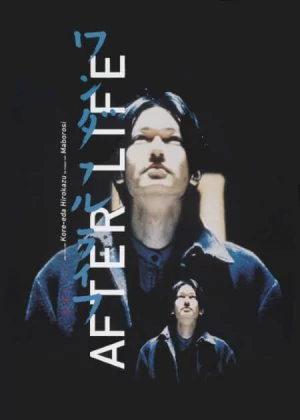After Life
Movie details

After Life [Wandafuru Raifu] was one of the first Japanese films I ever watched. It's the film that introduced me (and no doubt many other fans) to the work of Hirokazu Koreeda and that allowed him to make his breakthrough film Dare mo Shiranai. Fifteen years after its initial release, After Life has lost little of its initial charm and still stands as one of my favorite Koreeda films to date.
![screen capture of After Life [Wandafuru Raifu]](/thumbs/img/articles/1200xauto/after-life-1.webp)
Wandafuru Raifu (a transliteration of Wonderful Life) is not the first Japanese film to get a slightly adjusted title in the West, but in this particular case, the nuance is actually quite telling of the cultural differences between East and West. Where its Western name (After Life) puts a strong emphasis on the fantastical elements of the story, the original title (Wonderful Life) puts the focus on the celebration of human life. Both titles work well for the film, but I feel that the original title lies closer to what Koreeda was trying to express.
The film follows a small group of people working in a "transition home". Run pretty much like a typical school or district house, the place accepts between 30 and 40 recently deceased clients each week. Each of these people is assigned to a guardian who will help them to find their favorite, most treasured, and dearest memory. This is the one memory that the deceased are allowed to take with them to the afterlife.
After picking a memory everyone teams up to reenact the scenes and put them on film. Then at the end of the week, all the shorts are played in the local theater and when watching their own film the people are finally transported into the afterlife. It sounds like a pretty fantastical setup, but Koreeda's approach is as down-to-earth as you can imagine. There is no CG, nor any fantastical elements beyond the setup. The transition home looks like an ordinary school building, run by a group of ordinary people.
![screen capture of After Life [Wandafuru Raifu]](/thumbs/img/articles/1200xauto/after-life-2.webp)
Visually After Life is a little bland. At the same time, the blandness is quite functional as it underlines the very realistic approach to the story. Koreeda borrows a lot from the documentary genre with very similar framing (especially during the interview stage) and at times agile camera work, though After Life is definitely more cinematic than your average documentary. Still, a bit more color wouldn't have hurt the film as it can be a bit too grey and murky in places.
The soundtrack too is made to be inconspicuous. It's comprised of a selection of soft piano and string arrangements that sit well in the background but don't demand too much attention. It fits in with the whole documentary feel of the film, though I must say that the few tunes that are present are actually of pretty high quality. It's a typical soundtrack for Japanese dramas, but on closer inspection, it turns out to be one of the better attempts out there.
Koreeda has a way with people and once again this pays off big time. Apart from using a select group of professional actors he makes good use of amateurs, especially amongst the people recounting their memories. Not everything is scripted either, some interviews are actual stories of the people he interviewed. The staff of the center houses some familiar names (Susumu Terajima and Kei Tani are the most famous ones I think), but they are mainly there to support the visitors (both on and off screen).
![screen capture of After Life [Wandafuru Raifu]](/thumbs/img/articles/1200xauto/after-life-3.webp)
The first half of the film is dominated by interviews, only during the second half does Koreeda develop a small side story that fills up some dead space between the filming of the memories. It may be a tad unnecessary but from a commercial perspective, it does make the film more accessible to a wider audience. Without it, After Life would've just been a collection of individual stories which is a lot harder to sell.
There are two main reasons why this film is truly special. First of all, Koreeda has a perfect understanding of the question he tackles. If you ask people for their favorite (whatever) you always get a list of 10 muddled answers. If you ask them to pick only one (whatever) to take with them to an uninhabited island, that's when things get interesting. You have to force people to pick only one rather than leave them a choice to get to the core of what a person likes, and that's exactly what After Life does.
Secondly, some of the amateur actors are absolutely amazing, their stories so pure and passionate that it just rubs off on the film. The two grandmas in particular are some of the dearest characters I've ever seen in a movie, but all interviewees have something valuable to add to the film. Coming off as natural on screen is never easy, especially for amateur actors, but with the help of Koreeda, it's virtually impossible to separate the scripted stories from the actual memories.
After Life is a very chill and pleasant film. It pushes you to make the same choice as the characters while giving some poignant examples of the little things and joys that make someone's life worth living. And that's exactly why the film's original title feels more relevant. This film really isn't about the afterlife or about the transition from one life to the other. The afterlife may be a spiritual something, but the film never feels all that religious. Instead, After Life is about enjoying and appreciating the good things you have in your life. Warmly recommended for anyone who doesn't mind the modest pacing and styling.